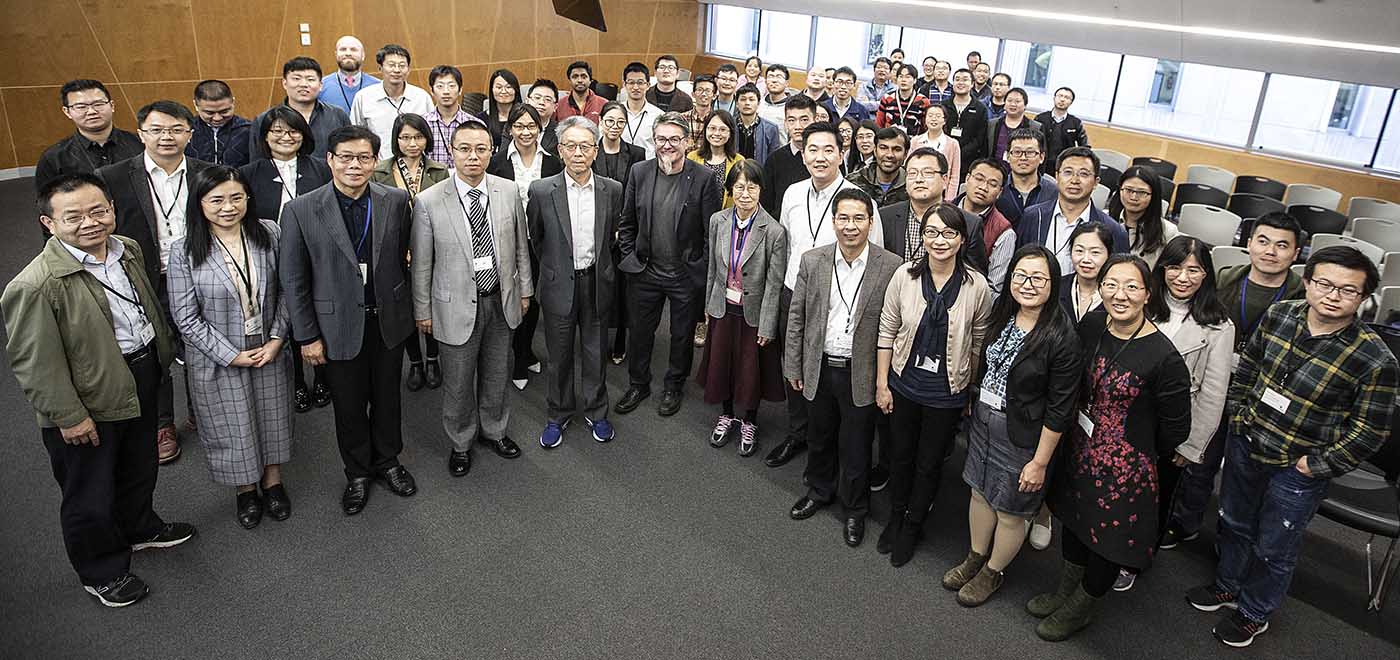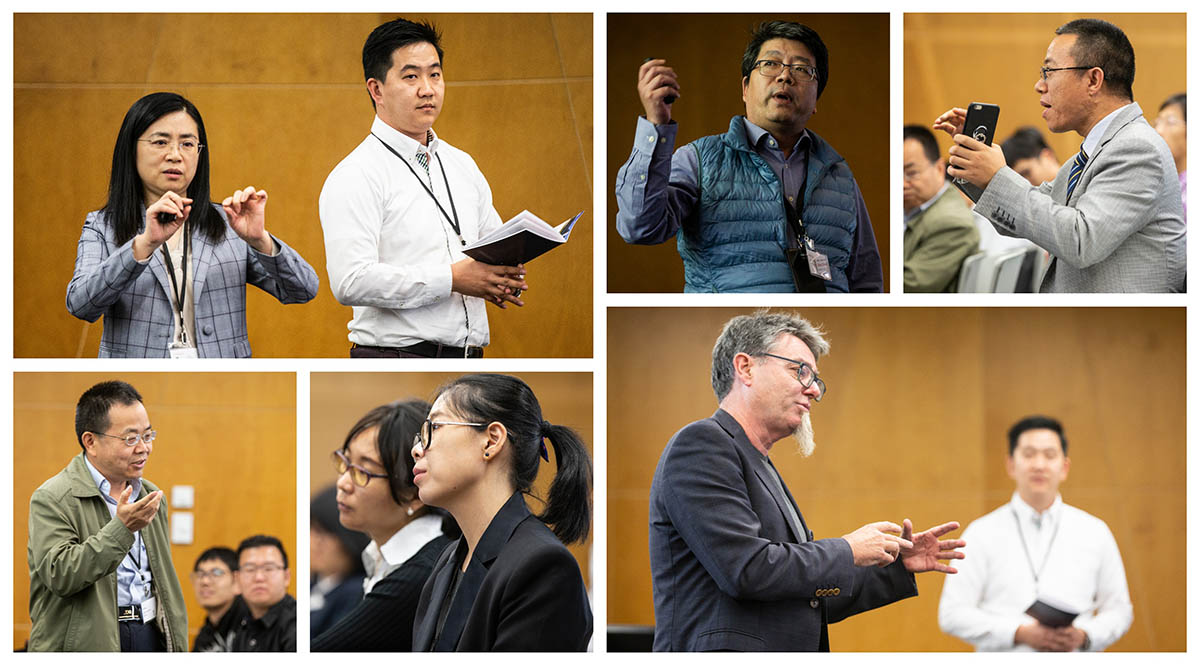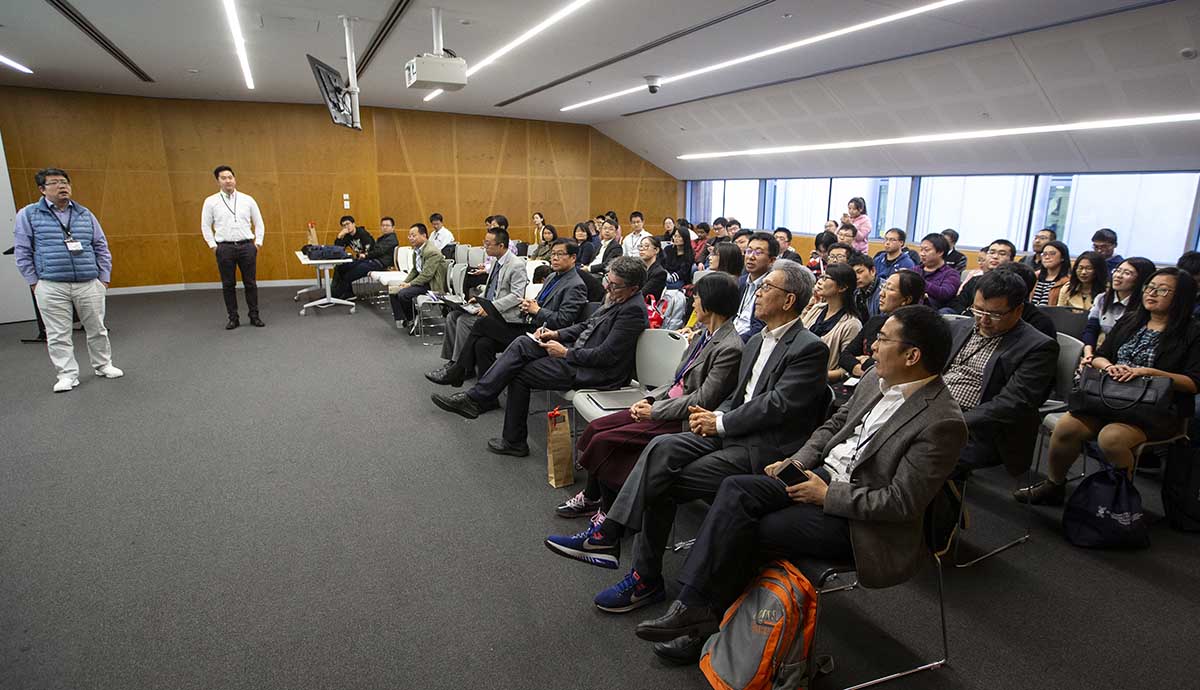July 31, 2018
Scientists share latest in materials, physics and chemistry research at Joint Workshop
Annual event fosters collaborative research between Beihang University and UOW
Researchers from Beihang University (BUAA) joined their colleagues from the University of Wollongong at the Innovation Campus on 27-28 July for the UOW-BUAA Joint Workshop for 2018 on Advanced Materials, Physics and Chemistry.
Beihang University (formerly Beijing University of Aeronautics and Astronautics) is a leading engineering research university and a strategic international partner of UOW. It is ranked in the top two in China in the disciplines of Materials Science and Engineering.
Since their first partnership in 2009, UOW and BUAA have developed a strong bilateral relationship and in 2014 established a Joint Research Centre to facilitate further collaboration and provide a dynamic environment for joint research in materials science, physics, engineering, and informatics sciences.
The Joint Research Centre is led by Centre Directors Professor Lei Jiang (BUAA) and Professor Shi Xue Dou (UOW).
The Joint Workshop, now held on an annual basis, provides a forum for researchers from the two universities to exchange research ideas, lay the groundwork for sharing of research resources and to set up collaborative programs in materials research and education.
The workshop also facilitates interdisciplinary and strategic collaboration, staff and student exchange, and the dissemination of knowledge about the latest developments and progresses in materials science, physics and chemistry. In addition, it supports the career development of young researchers in the Joint Research Centre.

Topics addressed at this year’s workshop, the 6th the two universities have held, included materials design and engineering, energy materials, medical radiation physics, surface science, environmental materials, superconductivity, condensed matter physics and 2D materials.
More than 40 leading professors and research fellows from both universities shared and communicated recent significant collaborative outcomes via invited talks and discussions. In addition, several new collaborations were initiated between BUAA’s schools and UOW’s faculties.
Workshop host, Dr Yi Du from UOW’s Institute for Superconducting and Electronic Materials (ISEM) and Australian Institute for Innovative Materials (AIIM), said it had been a very informative and productive two days.
“The successful joint workshop has set a good example of how two leading research universities can work together and produce excellent achievements via a research platform,” Dr Du said.
The first joint workshop was organised by UOW’s Institute of Superconducting and Electronic Materials (ISEM) and BUAA’s School of Physics. Since then it has expanded to include UOW’s Faculty of Engineering and Information Sciences (EIS) and the Australian Institute for Innovative Materials (AIIM), and BUAA’s School of Chemistry and Environment, School of Physics and Nuclear Energy Engineering, School of Materials Science and Engineering, and School of Computer Science and Engineering.
The Joint Research Centre has proved to be a fruitful collaboration. In its first three years of operation the Centre produced two joint Australian Research Council Discovery Projects, a joint Chinese National Nature and Science Fund project, a joint Chinese Academy of Science 111 project; more than 70 joint publications in high impact journals; more than 20 staff and student exchanges (including three joint PhD projects); and six joint symposiums on materials sciences.
The Joint Workshop in this year is financially supported by AIIM, EIS and ISEM.

About BUAA and UOW
The partnership between BUAA and UOW was established in 2009 with a PhD scholarship program jointly sponsored by UOW and the Chinese Scholarship Council (CSC). The collaboration developed quickly to involve several schools and research centres, including the Institute for Superconducting and Electronic Materials (ISEM), the School of Mechanical, Materials and Mechatronics Engineering, School of Computer Science and Software Engineering from UOW and the School of Chemistry and Environment, the School of Physics and Nuclear Engineering, and the School of Computer Science from BUAA.
